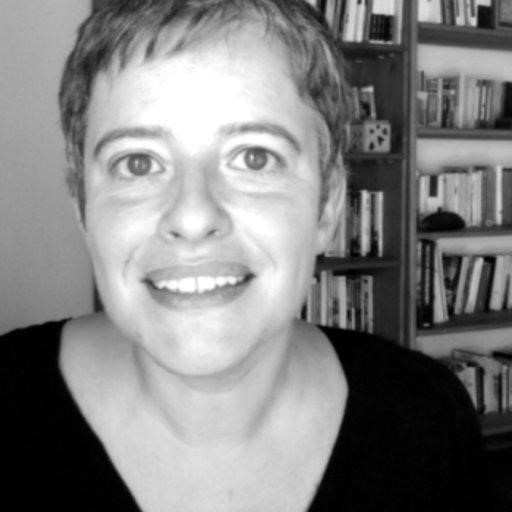“Media cyfrowe w oddolnej walce z korupcją. Możliwości
i wyzwania”

Badania prof. Alice Mattoni koncentrują się na związkach między mediami – cyfrowymi i tradycyjnymi – a ruchami społecznymi i organizacjami społeczeństwa obywatelskiego. Jako główna badaczka w projekcie BIT-ACT finansowanym przez ERC (2019-2024) śledzi jak organizacje społeczne i inicjatywy aktywistyczne rozwijają i wykorzystują cyfrowe platformy medialne do przeciwdziałania korupcji na całym świecie. Alice Mattoni jest zaangażowana także w projekt badawczy “AUTO-WELF – Automating Welfare: Algorithmic Infrastructures for Human Flourishing in Europe” (2022-2025) finansowanym z programu Chanse “Transformacje: Dynamika społeczna i kulturowa w epoce cyfrowej”. Jest redaktorem koordynującym Social Movement Studies oraz czasopisma Open Access Partecipazione e Conflitto. Wchodzi w skład rady redakcyjnej czasopisma Social Media + Society. Jest jedną z trzech współzałożycieli i obecnym redaktorem Routledge Series Media and Communication Activism. Jej prace ukazywały się w European Journal of Communication, Communication Theory, Information, Communication & Society, International Journal of Communication, Journal of Information Technology and Politics, The Review of Communication, and Social Movement Studies.
Short Bio
Alice Mattoni is an Associate Professor in the Department of Political and Social Sciences at the University of Bologna. Her research focuses on the intersections between media – digital and otherwise – and social movements, civil society organizations and movement organizations. As Principal Investigator of the ERC funded project BIT-ACT (2019-2024), she investigates how movement organizations develop and employ digital media platforms to counter corruption across the world. She is a cooperating partner of the research project “AUTO-WELF – Automating Welfare: Algorithmic Infrastructures for Human Flourishing in Europe” (2022-2025) funded by the Chanse scheme “Transformations: Social and cultural dynamics in the digital age”. She is Coordinating Editor of Social Movement Studies and of the open-access journal Partecipazione e Conflitto. She is part of the Editorial board of Social Media + Society. She is one of the three co-founders and current editor of the Routledge Series Media and Communication Activism. Her work has been published in international journals such as European Journal of Communication, Communication Theory, Information, Communication & Society, International Journal of Communication, Journal of Information Technology and Politics, The Review of Communication, and Social Movement Studies.
Abstract of a lecture on “Opportunities and Challenges of Digital Media in the Grassroots Fight Against Corruption”
Digital media have an increasingly central role in the grassroots struggles against corruption. Many social movements, civil society organizations, and activist groups worldwide create and employ various types of digital media to increase the transparency of political processes, render politicians more accountable, and uncover hidden corruption practices. The lecture discusses how activists worldwide include digital media in their anti-corruption struggles. First, the lecture ends with a reflection on the importance of taking digital media into serious consideration within the anti-corruption sector, especially considering the fast technological developments related to AI applications. Then, drawing on the concept of Anti-Corruption Technology, the lecture will first claim that digital media are not all the same since they come in many shapes and formats and evolve from diverse social, cultural and political contexts. Finally, by presenting different case studies from Europe, Latin America and South-East Asia, the lecture addresses the distinct set of opportunities and challenges that each digital media brings with them in the grassroots opposition to corruption.
Announcement
We are pleased to announce the upcoming open lecture “Opportunities and Challenges of Digital Media in the Grassroots Fight Against Corruption”” by prof. Alice Mattoni. The lecture will focus on how activists worldwide include digital media in their anti-corruption struggles.
Prof. Mattoni’s mentoring visit at University of Warsaw is organized by the Digital Economy Lab and is held within the “Mentoring Programme” scheme (Action I.1.1/IV.1.1 ) of “Excellence Initiative – Research University” Programme.
Alice Mattoni is an Associate Professor in the Department of Political and Social Sciences at the University of Bologna. Her research focuses on the intersections between media – digital and otherwise – and social movements, civil society organizations and movement organizations. As Principal Investigator of the ERC funded project BIT-ACT (2019-2024), she investigates how movement organizations develop and employ digital media platforms to counter corruption across the world. She is a cooperating partner of the research project “AUTO-WELF – Automating Welfare: Algorithmic Infrastructures for Human Flourishing in Europe” (2022-2025) funded by the Chanse scheme “Transformations: Social and cultural dynamics in the digital age”. She is Coordinating Editor of Social Movement Studies and of the open-access journal Partecipazione e Conflitto. She is part of the Editorial board of Social Media + Society. She is one of the three co-founders and current editor of the Routledge Series Media and Communication Activism. Her work has been published in international journals such as European Journal of Communication, Communication Theory, Information, Communication & Society, International Journal of Communication, Journal of Information Technology and Politics, The Review of Communication, and Social Movement Studies.
The lecture will take place on Tuesday, November 8th 2022, 16:00-18:00 at the UW Department of Sociology at Karowa 18 street, room 18.